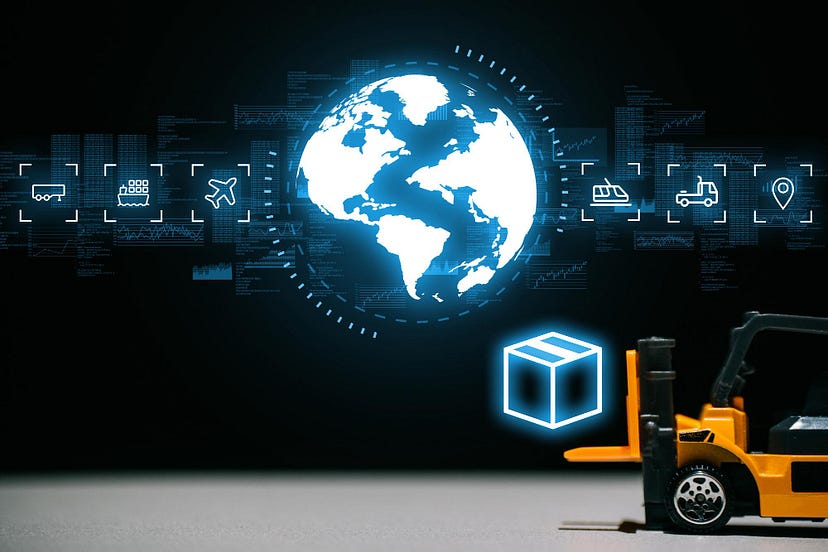In today’s fast-paced world, the logistics industry plays a critical role in connecting businesses and consumers. With the rise of digitalization, technology has become a game-changer for logistics service providers, revolutionizing the way operations are conducted.
From enhancing efficiency to improving customer experience, digital tools, and technologies have opened up new possibilities for seamless operations. In this blog, we will explore some interesting terms related to the digitalization of logistics and how they can empower logistics service providers to stay ahead of the curve.
- Internet of Things (IoT): The Internet of Things refers to the network of interconnected physical devices embedded with sensors, software, and connectivity capabilities. In logistics, IoT enables real-time tracking and monitoring of goods throughout the supply chain. Smart sensors attached to shipments provide valuable data on location, temperature, humidity, and other environmental factors. This technology enables logistics service providers to optimize routes, ensure the integrity of perishable goods, and provide accurate estimated arrival times to customers.
- Artificial Intelligence (AI): AI is revolutionizing the logistics industry by enabling intelligent decision-making and automation. AI-powered algorithms can analyze vast amounts of data to identify patterns, optimize routes, and predict demand. Machine learning algorithms can continually improve accuracy and efficiency based on past experiences. Logistics service providers can leverage AI for demand forecasting, inventory management, and route optimization, resulting in cost savings, faster deliveries, and better resource allocation.
- Blockchain: Blockchain technology provides a secure and transparent way to record, verify, and track transactions across a distributed network. In logistics, blockchain can enhance supply chain visibility and traceability. Each transaction is recorded as a block, forming an immutable chain of information. This technology minimizes fraud, reduces paperwork, and improves trust among stakeholders. Logistics service providers can benefit from blockchain by ensuring the integrity of data, streamlining customs processes, and creating a more efficient and secure supply chain ecosystem.
- Cloud Computing: Cloud computing offers logistics service providers a scalable and flexible infrastructure to store and process data. By moving from on-premises servers to cloud-based platforms, logistics companies can access real-time information from anywhere, collaborate with partners, and scale their operations as needed. Cloud computing also enables the integration of different systems, such as warehouse management, transportation management, and customer relationship management, leading to streamlined operations and improved data-driven decision-making.
- Robotic Process Automation (RPA): RPA involves the use of software robots to automate repetitive and rule-based tasks in logistics operations. Robots can perform tasks such as data entry, order processing, and invoice reconciliation with speed and accuracy, freeing up human resources to focus on more complex activities. RPA reduces errors, improves operational efficiency, and enhances customer satisfaction by minimizing delays and increasing process reliability.
- Predictive Analytics: Predictive analytics uses historical and real-time data to forecast future trends and outcomes. In logistics, predictive analytics can help service providers anticipate demand, optimize inventory levels, and prevent disruptions. By analyzing data from various sources, including weather patterns, social media, and customer behavior, logistics companies can gain insights into customer preferences, optimize delivery schedules, and proactively mitigate risks.
Conclusion: The digitalization of logistics presents a wealth of opportunities for service providers to transform their operations and deliver seamless experiences to their customers. By leveraging technologies such as the Internet of Things, artificial intelligence, blockchain, cloud computing, robotic process automation, and predictive analytics, logistics service providers can optimize processes, increase efficiency, reduce costs, and improve customer satisfaction.
Embracing these digital tools will be crucial for staying competitive in the rapidly evolving logistics landscape. As the digital revolution continues to unfold, logistics companies that adapt and harness technology will pave the way for a new era of seamless operations.
Subscribe to
Shypr for more articles.


